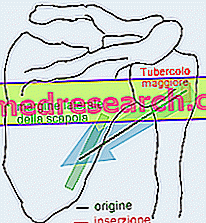Definition
Stomach cancer is one of the most widespread tumors in Europe; in particular, the pylorus and the cardia represent the two target anatomical areas from which the gastric neoplasm originates most often. Male subjects are those most at risk of developing stomach cancer.
Causes
The causal factors underlying stomach cancer remain a subject of study today; however, some predisposing elements have been identified, as well as the risk factors that seem to favor the disease: repeated Helicobacter pylori infections, gastritis possibly associated with pernicious anemia, genetic predisposition and gastric ulcer.
Symptoms
Stomach cancer has a rather slow progression, but the symptoms, although mild and vague in the initial stage, can warn the patient that something is wrong; In general, cancer sends signals such as difficulty in taking large amounts of food and lack of interest in smoking. In addition to these rather peculiar signs, cancer is often accompanied by asthenia, a bitter mouth, difficulty in digesting, weight loss, dysphagia, blood emission with vomiting, belching, gastric pyrosis, blood in stools or dark and tarry stools.
Diet and Nutrition
Information on Stomach Cancer - Stomach Cancer Treatment Drugs is not intended to replace the direct relationship between health professional and patient. Always consult your doctor and / or specialist before taking Stomach Cancer - Stomach Cancer Treatment Drugs.
drugs
To date, surgery is the most effective therapeutic option for treating stomach cancer; it is necessary, however, to remember that the surgical eradication of the neoplastic area is possible only when the tumor is discovered in an initial stage, a not always simple event, due to a rather vague and non-specific onset symptomatology, which tends to prolong diagnostic assessment.
Among the most used surgical procedures, we recall:
- Partial gastrectomy: removal of a portion of the stomach, corresponding to that affected by the neoplasm. Side effects: loss of appetite, burning sensation in the retrosternal region
- Total gastrectomy: total removal of the entire organ
- Enlarged gastrectomy: reserved for advanced tumors of the stomach. It involves the removal of the stomach and sections of other organs affected by the neoplasm, such as spleen, lymph nodes, liver, pancreas etc.
Often, surgery is associated with radiotherapy, to be performed during surgery to increase the likelihood of having eliminated all cancer cells; unfortunately, however, stomach cancer is often resistant to radiation therapy.
The use of chemotherapy drugs for the treatment of stomach cancer has been very controversial: it seems, in fact, that the administration of these drugs is useful exclusively for palliative purposes. It is however conceivable that a neoadjuvant therapy - that is to say performed before a surgical intervention - could be useful to reduce the tumor extension, increasing the chances of success. In the event of stomach cancer in the metastatic phase, neoadjuvant therapy does not seem to bring any benefit to the sick patient, if not the slightest decrease in prodrome.
- 5-fluorouracil (eg Fluorouracil): for the treatment of stomach cancer, it is recommended to start drug therapy with 12 mg / kg of fluorouracil, intravenously, once a day for 4 consecutive days. Do not exceed 800 mg / kg. In case of non-toxicity, prolong therapy and take 6 mg / kg of drug per day 6-8-10-12, starting from the first day of treatment. The dose should be changed in case of severe malnutrition of the patient. Consult your doctor.
- Cisplatin (eg Cisplatin ACC, Platamine, Pronto Platamine) and Oxaliplatin (eg Oxaliplatin ACC, Eloxatin) although used as drugs of choice for the treatment of lung and colon cancer, cisplatin and Oxaliplatin are also sometimes used in gastric cancer therapy. Consult your doctor.
- Docetaxel (eg Docetaxel Teva Pharma, Docetaxel Teva, Docetaxel Winthrop, Taxotere): start taking the drug at a dose of 75 mg per square meter of body surface (infusion duration: 1 hour), followed by 75 mg / m2 of cisplatin ( 1-3 hours of infusion). End with 750 mg / m2 of fluorouracil per day for 24-hour intravenous infusion. Respect this therapeutic scheme for 5 consecutive days, starting at the end of the cisplatin infusion. Repeat the treatment every 3 weeks. Generally, before taking these drugs, patients are treated with antiemetics to prevent vomiting and with oral corticosteroids (eg dexamethasone - eg Decadron, Desameta, Etacortilen, soldesam - at a dose of 16 mg per day, for three days) before taking Docetaxel), in order to reduce the retention of liquids induced by chemotherapeutic drugs.
- Epirubicin (eg. Epirubicin AHCL, Farmorubicin): used mostly in therapy for the treatment of breast cancer, this drug is used only secondarily for stomach cancer. Consult your doctor.
- Capecitabine (eg Xeloda): the drug, available in tablets of 150 to 500 mg, is indicated for gastric cancer, colon and breast. For the treatment of stomach cancer, the drug is taken at a dose of 650-1250 mg per square meter of body surface; the tablets should be taken within 30 minutes of the end of the meal.
- Doxorubicin (eg Adriblastina, Caelyx, Doxorubicin ACC, Myocet): the drug is often used in combination with other chemotherapy drugs; in general it is administered at the dosage of 40-60 mg / m2 ev every 21-28 days. Alternatively, take 60-75 mg / m2 ev once a day every 3 weeks.
- Mitomycin (eg Mitomycin C): this drug is used in therapy for the treatment of stomach cancer as a palliative or when other chemotherapists have failed. Take 20mg / m2 by IV route, in a single dose, via an intravenous catheter. Stomach cancer should be treated with this active ingredient for 6-8 weeks.
Diet and stomach cancer
In the case of stomach cancer, the patient should try to limit certain foods for the benefit of others:
- Limit the use of salt
- Avoid carbohydrate-rich foods
- Don't eat sausages
- Follow a diet rich in fruit, vegetables and fiber
- If the diet is deficient, supplement it with vitamin A and C, useful to prevent the synthesis of nitrosamines (compounds ideally responsible for genetic mutations, implicated in the formation of tumors such as the stomach).



